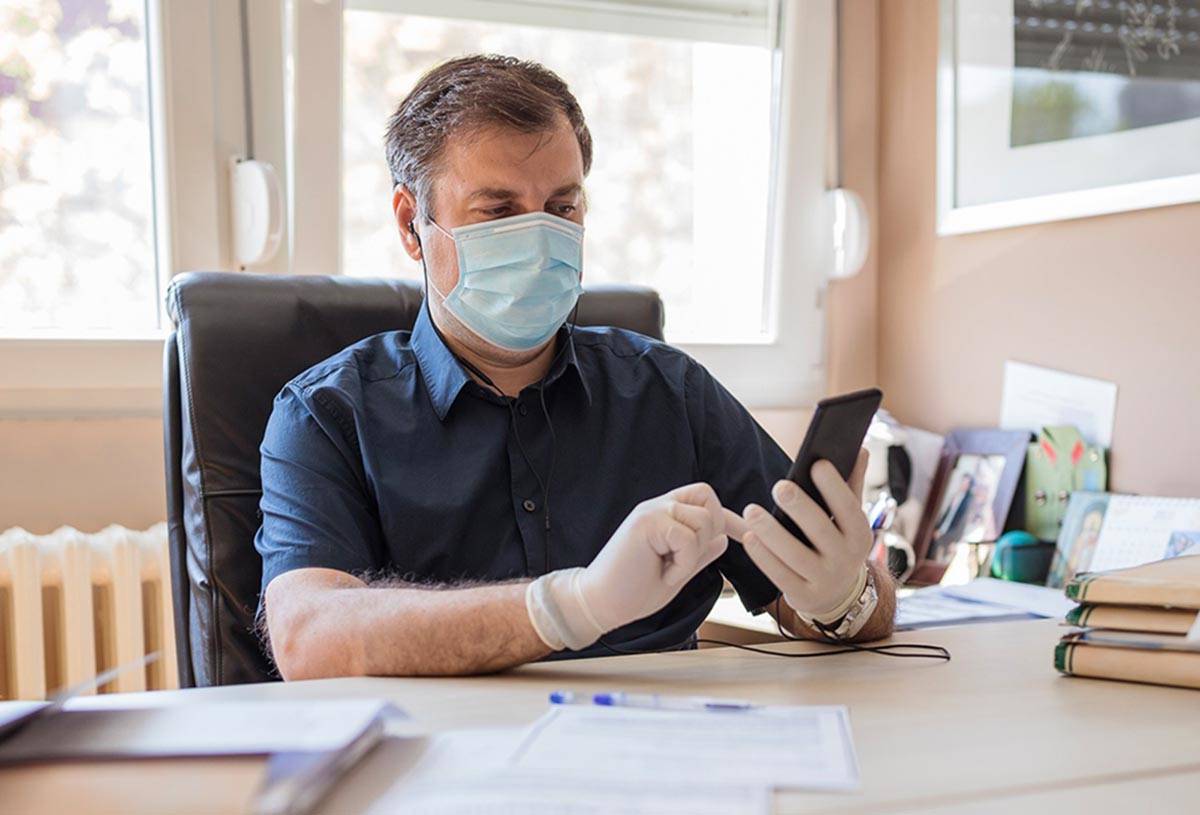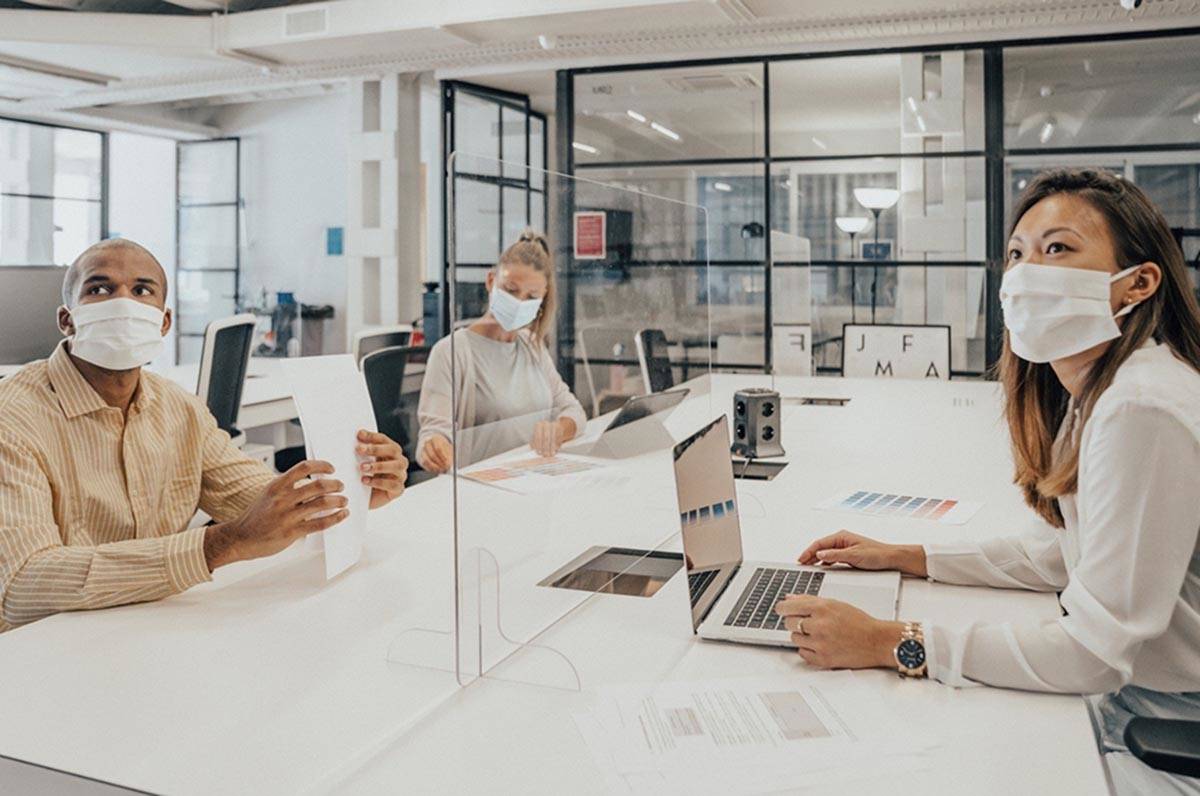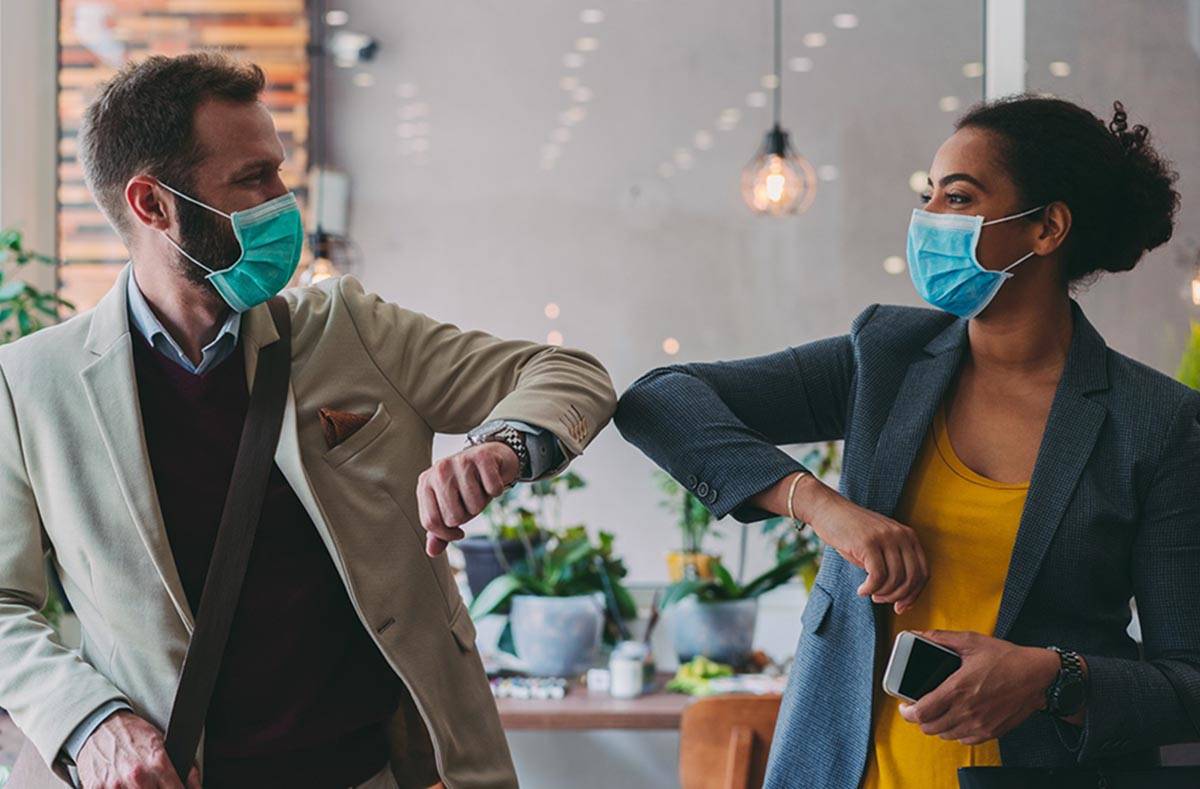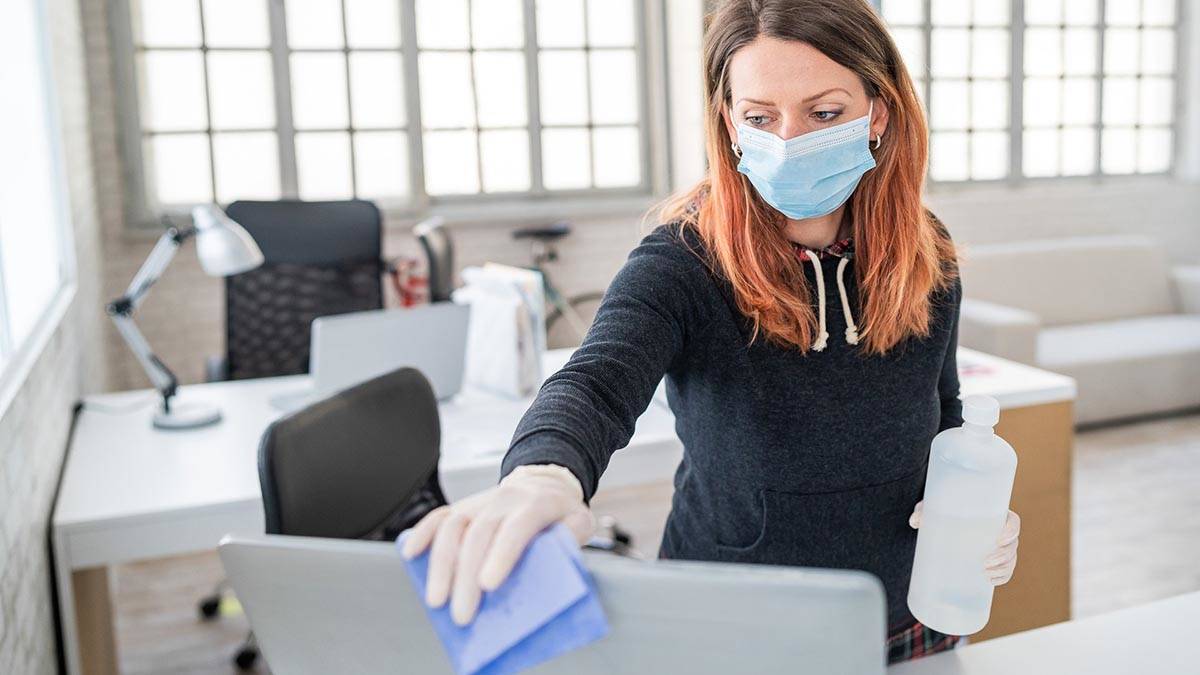Protecting yourself when you return to your office
Depending on where you work and what you do, you may be returning to work at a physical office in the near future. To mitigate the risks of catching and spreading the coronavirus, it’s important to take some extra precautions to keep yourself safe.
See: Should employers require workers to take time off?
Keep your distance from colleagues
The Centers for Disease Control and Prevention recommends social distancing and keeping at least six feet away from others whenever possible. Your office set-up will affect your ability to social distance, but do your best to keep in-person interactions with your colleagues at a minimum. If you have your own office, keep your door closed and opt to continue to take meetings via video or phone when possible. If you work in an open floor plan environment, do your best to sit away from colleagues and create a physical barrier around your workspace if possible.
Read: 6 career mistakes to avoid during an economic downturn
Don’t shake hands
It’s been common practice to shake hands with colleagues and clients before and after meetings, but you should abstain from any physical contact with others amid the pandemic. The CDC is even advising employers to prohibit handshaking.
Related: Handshakes and more office rules changed by COVID-19
Wear a mask
The CDC has called on all Americans to wear masks to help curb the spread of the coronavirus. “There is increasing evidence that cloth face coverings help prevent people who have COVID-19 from spreading the virus to others,” the organization stated.
Wearing a mask is one of the best ways to keep yourself and your colleagues safe while working together in an office.
Read more: How to interview for a job when you’re wearing a mask
Wash your hands frequently
The CDC recommends washing your hands before and after work shifts; before and after work breaks; after blowing your nose, coughing or sneezing; after using the restroom; before eating or preparing food; and after putting on, touching or removing your face covering.
Wash your hands with soap and water for at least 20 seconds, or use hand sanitizer with at least 60% alcohol if soap and water are not available.
Don’t touch your eyes, nose or mouth with unwashed hands
Before working from home became the norm, you were probably more careful about not touching your face without washing your hands first. Now that you’re going back into a public workspace, this is a rule of thumb you should be mindful of once again.
BYO hand sanitizer
Although hand washing is preferred, if you can’t easily access a sink at your office, be sure to keep hand sanitizer at your desk so you can continue to disinfect your hands frequently throughout the day. A reminder that to be effective, the sanitizer should contain at least 60% alcohol.
Routinely clean objects and surfaces you frequently touch
Be sure to regularly clean and disinfect anything you touch a lot throughout the day, including your keyboard and phone.
If your office does not provide cleaning supplies, be sure to bring your own.
Avoid using other employees’ work supplies
Pre-pandemic, you probably didn’t think twice before grabbing a pen off your co-worker’s desk to jot down a quick note. Now, however, the CDC advises against “using other employees’ phones, desks, offices, or other work tools and equipment, when possible.” If you do have to borrow their things, be sure to disinfect the object first and wash your hands after use.
Ask for flexible hours if you rely on public transportation
If you take public transportation to work, ask your employer if you can shift hours to avoid busy commute times.
Read more: Reasons why a four-day workweek is better for everyone
Stay home if you are sick and encourage others to do the same
If you are experiencing any symptoms of the coronavirus, notify your supervisor and stay home. If you do have the coronavirus, don’t return to work until it is safe to do so. It is safe to return only if all of the criteria outlined by the CDC are met:
It’s been 10 days since symptoms first appeared.
You’ve gone 24 hours with no fever without the use of fever-reducing medications.
Other symptoms of COVID-19 are improving.
Encourage your colleagues to do the same to help stop the spread within the office.
Make sure your company has a communication plan
The CDC recommends that all employers “create and test communication systems that employees can use to self-report if they are sick and that you can use to notify employees of exposures and closures.” Ask your human resources department or manager what communication plan is in place, and if there is not one, encourage them to develop one.
More From GOBankingRates
Money’s most influential: Where do Americans get their financial advice?
Everything you need to know about taxes this year
Here’s how much you should have in your 401(k) account, based on your age
This article originally appeared on GOBankingRates.com: How to protect yourself when you return to your office

























